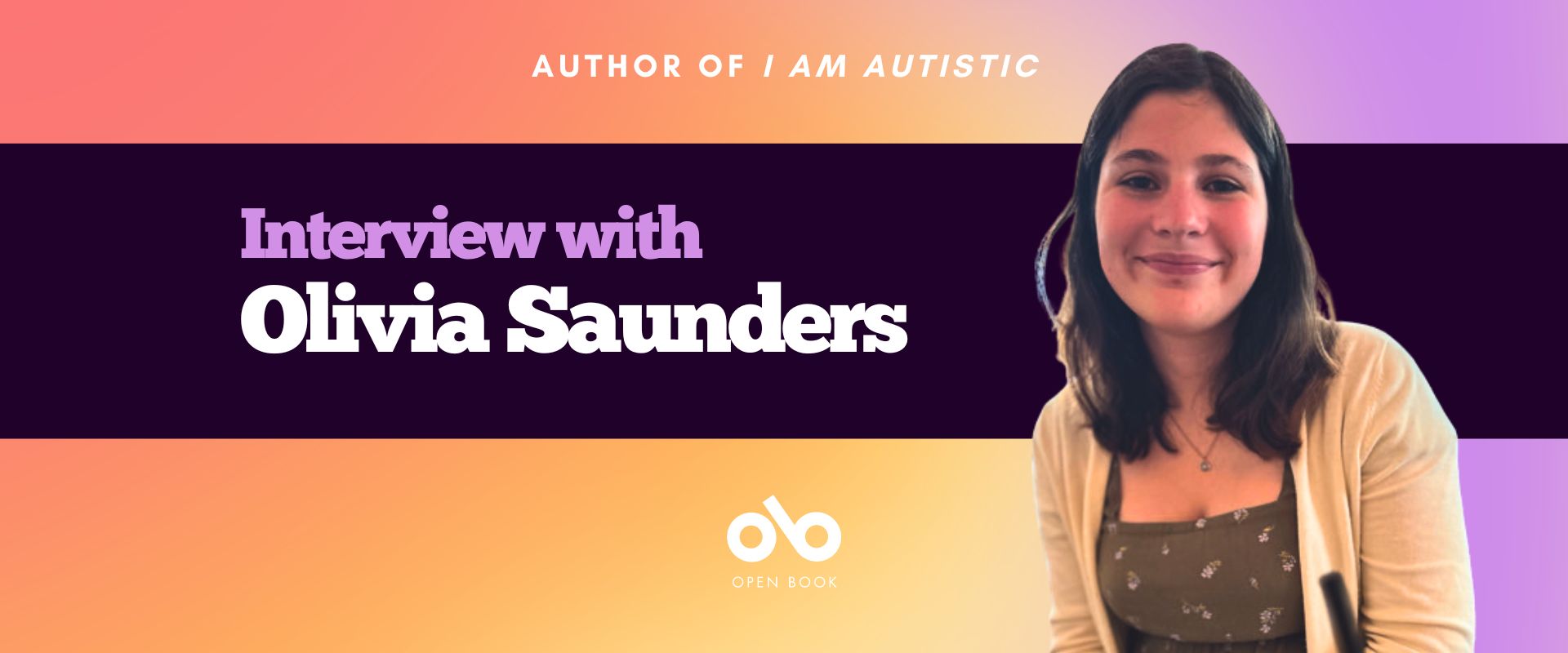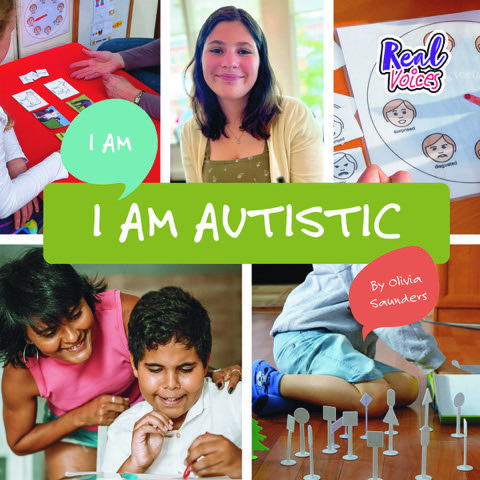"We Crave Authentic Stories" Olivia Saunders on Sharing Her Experience Living with Autism with Young Readers
From avoiding sensory overloads to explaining her necessary strategies to friends and teachers, Olivia Saunders' experience of living with autism has impacted her life for more than 18 years. Now, as part of Beech Street Books' I Am series, Saunders is seeking to support other autistic young people by sharing her story with readers in I Am Autistic (Beech Street Books), an excellent new resource for educators, parents, caregivers, and anyone with kids in their life. Saunders acknowledges her individuality — and that of all people on the autism spectrum — telling us "I do not speak for all autistic people but I do hope my book helps those who need it".
In the I Am series, Canadians share their unique lived experiences with young readers in punchy, visually engaging books that are perfect for readers from grade three to six. In titles like I Am Blind, I Am Sikh, and I Am A Buddhist, kids meet diverse viewpoints in interesting, authentic ways.
Olivia is speaking with us today as part of our My Story memoir interview series, explaining why she chose to share her experiences with young readers now. She discusses the sensitive elements of writing her story, including the important caveat that "every autistic person is different and sharing [one] story is not the same as another", sharing her strategy of avoiding "sounds, bright lights, or smells" during the writing process to avoid triggering sensory issues, and noting how she coped with the anxiety of sharing her personal life with the public.
Open Book:
How did your memoir project first start? Why was this the right time to tell your story?
Olivia Saunders:
I originally got the idea to write a memoir a little over a year ago. I follow a lot of autism advocates and I loved the fact they shared their stories. I felt like there needed to be more autistic representation in media and people need to be educated on it.
I felt like this was the right time because our world is changing and getting better with acceptance but it’s not perfect. I knew if I wanted a change, I would have to do it myself.
OB:
Is there a question that was central to this project? And if so, did you know the question when you started writing or did it emerge from the process?
OS:
The question that was central to this project was how do I inform and educate people about autism without making it sound like I’m speaking for all autistic people? I know every autistic person is different and sharing my story is not the same as another person’s. I wanted to convey the fact that I do not speak for all autistic people but I do hope my book helps those who need it.
OB:
What did you need in order to write- in terms of space, food, rituals, writing instruments?
OS:
When it comes to writing I have to make sure there are no distractions near me as I can get distracted easily. I also have to make sure I set up a time to write instead of just writing whenever. I usually use my computer to write by typing on a doc but sometimes I will switch to paper. Another thing that is important for me when writing is that I don’t have any sounds, bright lights, or smells as I have sensory issues and those things make it very difficult for me to write.
Your CanLit News
Subscribe to Open Book’s newsletter to get local book events, literary content, writing tips, and more in your inbox
OB:
Did you experience any anxiety about making a part of yourself public in this way? If so, how did you or do you cope with the vulnerability of publishing a memoir?
OS:
I did experience a bit of anxiety about making part of myself public in this way because I was scared of being judged. As an autistic person, I deal with being judged by people because they think I’m faking it, so I knew that it might happen with this book. I coped with my anxieties by talking to my family and friends and realizing that there isn’t anything to be afraid of. I am autistic and someone saying I’m faking it will never stop me from being me.
OB:
Personal essays, memoirs, and creative nonfiction in general have becoming particularly in demand and loved by readers in recent years. Why do you think creative nonfiction is more popular than ever?
OS:
I think that creative nonfiction is more popular than ever right now because we crave authentic stories. As a kid there weren’t really any stories that had authentic autistic leads so I craved a book where someone talked about it. With creative nonfiction, people feel seen. We are able to relate to the stories and say I know what you went through. Through creative nonfiction we are able to understand not only others but ourselves and it’s so incredible that these stories can do that.
_____________________________________________
Olivia Saunders is a dancer, performer, and artist from Collingwood, Ontario, Canada. When not away at school, Olivia lives with her family and loves musicals, bubble tea, friends, her dog, and all things Disney.






